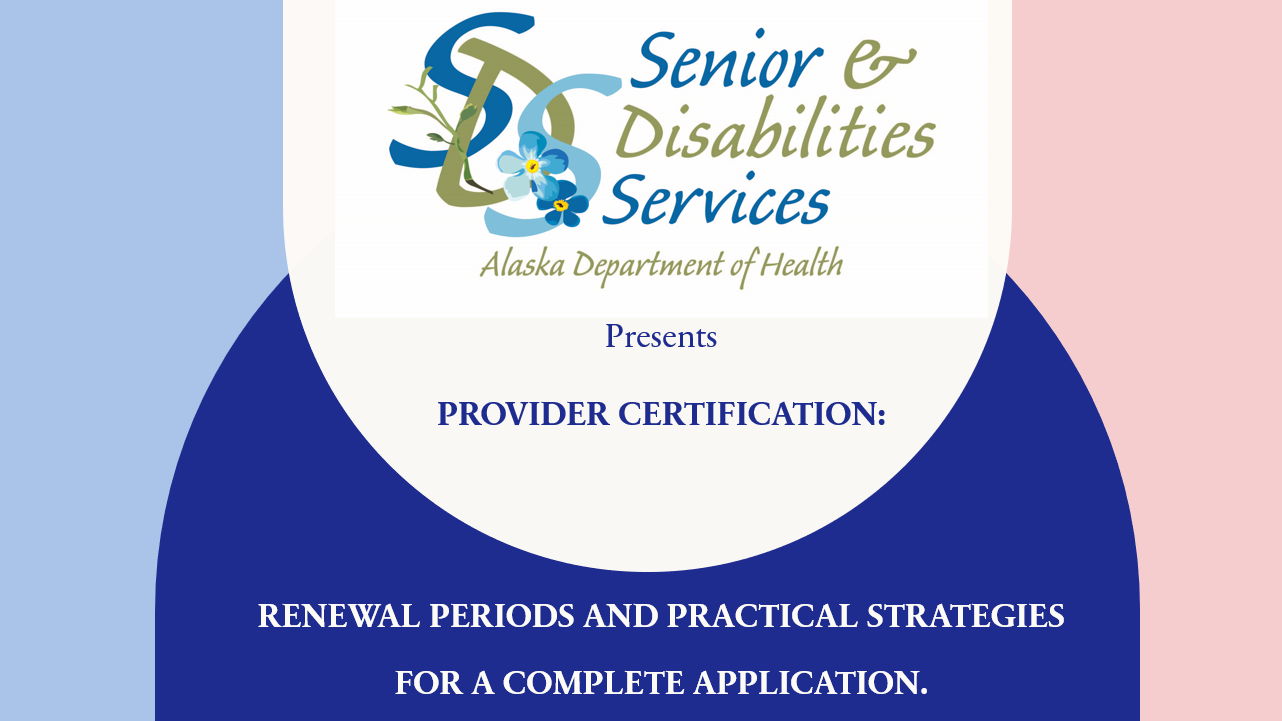This presentation is from SDS's General Relief Program. It provides information on the Client Activity Forms and other Processes.
To receive credit you must watch the full video and complete the course.
Approximate time for completion (30 minutes). Worth 1 Continued Education Hour.

Join Senior and Disabilities Services for a course that covers the basics. Get an introduction to Alaska Medicaid for long term care. Learn about the Home and Community Based Waiver. Find out who is eligible for one and what help the Waiver provides. We also cover a few resources that are not Waivers.
The purpose of this training is to provide a clear understanding of documentation and the many purposes it serves. Upon completion of this training, you will receive a certificate of completion.

- Teacher: Cassandra Lynch
- Teacher: Damon Sylva
This training is a live recording of the November 2023 Care Coordinator Infoshare Meeting. It reviews the purpose of CC contacts, how contact requirements have changed, tips for connecting, and what to do if you can't make a contact. You will also hear practical advice and experiences from care coordinators. Questions and themes were presented live in session that could not be answered live. Answers to those questions are covered in the PDF attachment within the course, Titled: Monthly Care Coordination (Contacts).
To receive a CEH for this course you must watch the video and view the PDF files within the Resources section.
Time to complete course is a minimum of 1 hour.

Community First Choice (CFC) is a service package that helps Alaskan remain independent in their homes. This course explores CFC in the following segments:
- Introduction to CFC Services
- Applying for CFC Services
- Requesting and Changing CFC Services
This course is open for all Academy users. Care Coordinators may earn 2 CEHs for this course if they pass the exam with an 80% or higher.

This training is an overview of the changes to Day Habilitation services that will take effect on July 1, 2024. In this video you will find a plain-language breakdown of the changes to definitions, added language, instructions on requesting more than the limit of services, and supporting documents needed to request additional services.

This is a one hour continued education (1CEH) training covers the changes to the Renewal Certification process after recent regulation changes. The information is relevant to all Personal Care and Home and Community Based Service Providers. (Including agencies and Individual Care Coordination certification types.)
Specific topics explored include: certification periods, training requirements, and common findings that delay or prevent recertification (and how to avoid them).
This course will take approximately one hour to complete. For successful completion the learner must engage in the video recordings.

- Teacher: Delight Mells